20 of the oldest traditions in America that are still carried out today
Zoë Ettinger

- Thanksgiving, Mardi Gras, and Fourth of July traditions have been around for hundreds of years.
- Customs surrounding the presidency, such as the turkey pardoning, are also some of America's oldest.
- The United States also has some stranger cultural institutions, like competitive-eating contests.
- Visit Insider's homepage for more stories.
The United States is hundreds of years old, but some of its most famous traditions are even older.
Thanksgiving has been celebrated since 1621 — nearly 400 years — while the Fourth of July has been celebrated since 1777, predating the swearing in of the nation's first president by over a decade.
Yet some of America's other traditions are a bit more unusual. Competitive eating, for example, has been practiced for more than 100 years, with large sums of money awarded to the winners.
Take a look at America's oldest traditions — some may surprise you.
Read the original article on InsiderCheerleaders performing alongside athletes is another American tradition — it was started by a male cheerleader in 1898.
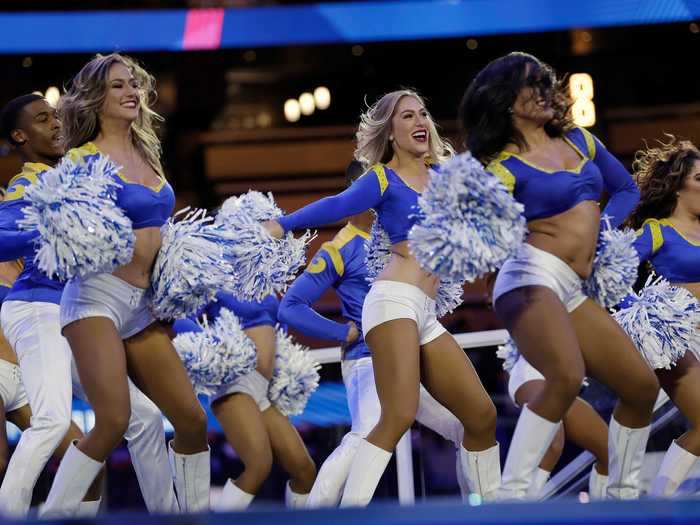
On November 2, 1898, University of Minnesota student Johnny Campbell led the first organized cheer at a football game between Minnesota and Princeton University.
The World Series has been a tradition since 1903.
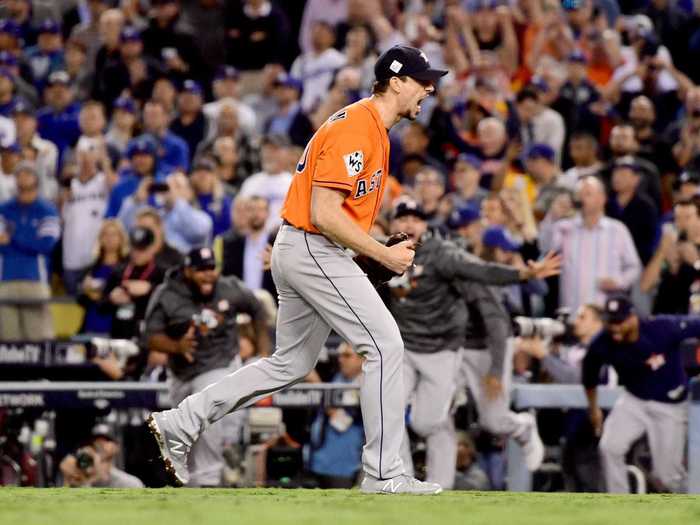
The first World Series occurred after champions from two rival leagues, the Pittsburgh Pirates for the National League and the Boston Americans for the American League, played a game. Boston won five games to three.
The first Harvard-Yale football game was played in 1875. Today, games are played every November.
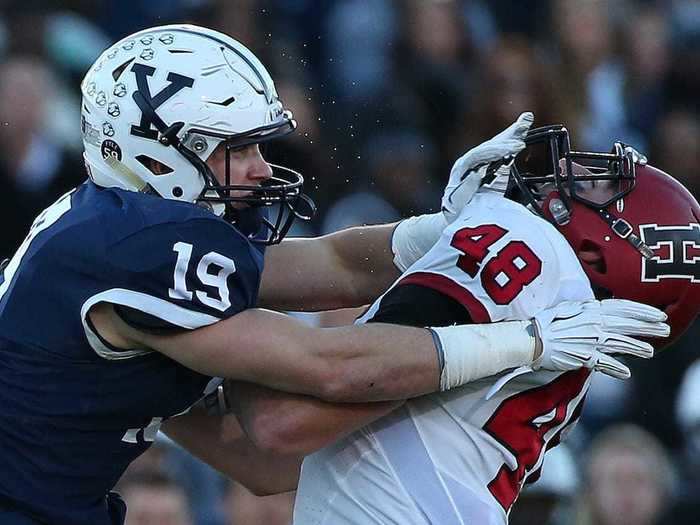
According to Connecticut History, on November 13, 1875, Yale and Harvard wore the first team uniforms in an American intercollegiate football game.
Many universities also have long-standing traditions. Dartmouth's Winter Carnival was first held in 1910 and continues to this day.
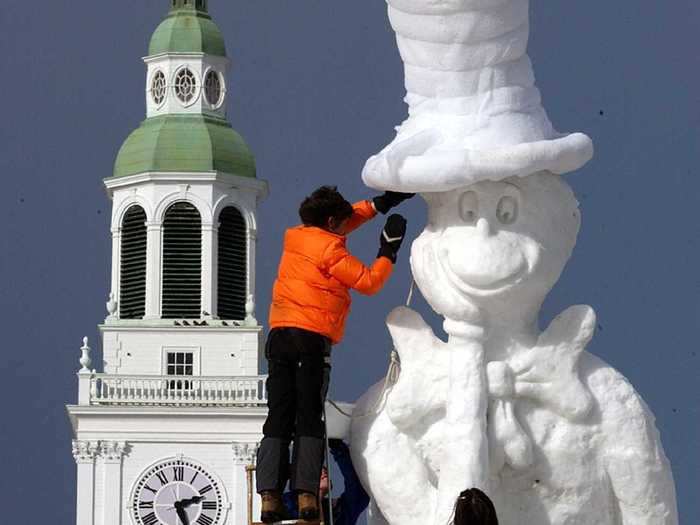
The carnival features events such as ski races, an ice sculpture contest, a polar bear swim, and a human dog sled race.
Organized competitive-eating competitions have been a tradition in America since 1916, when Nathan's held its first hot dog-eating contest.
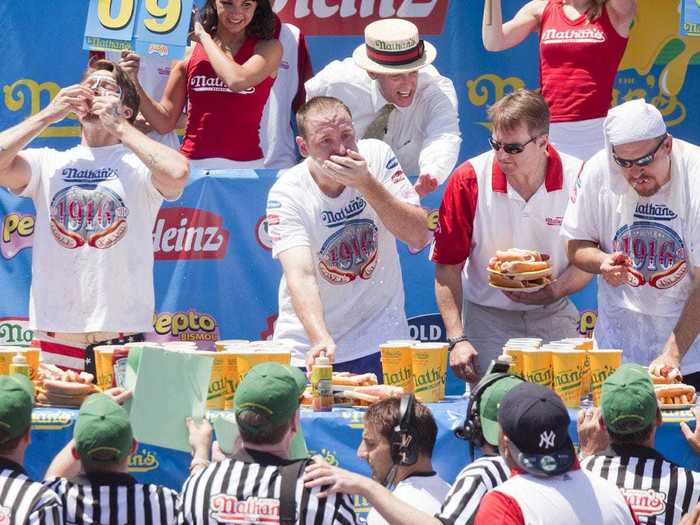
According to Time, Nathan's Famous held its first Fourth of July hot dog-eating contest in 1916 on Coney Island. The contestants were said to be four immigrants, who competed to determine who was the most patriotic. An Irishman won, consuming 13 hot dogs.
Alaska's Nenana Ice Classic has been a tradition since 1917. It involves guessing what day the ice on the Nenana River will break in spring.

The tradition was started by railroad engineers, who bet a total of $800 on when the ice on the Nenana River would break, down to the date, hour, and minute.
Today, the jackpot for guessing right is far higher — this year's was $125,000. The event had a record jackpot in 2014: $363,627.
It's also a tradition for the president to swear his oath of office on the Bible, though some presidents, like Theodore Roosevelt, have not.
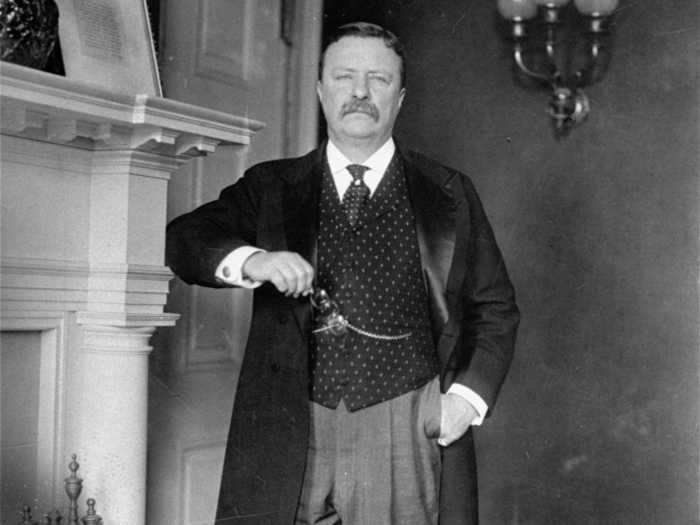
Franklin Pierce and John Quincy Adams also did not swear their oaths of office on the Bible; instead, they swore on law books.
Whether or not the president swears on the Bible, by taking the oath they commit to upholding the Constitution and executing the role of the president lawfully.
Guidelines for the president's inauguration are a part of the Constitution, but the ceremony itself is rooted in tradition rather than law.
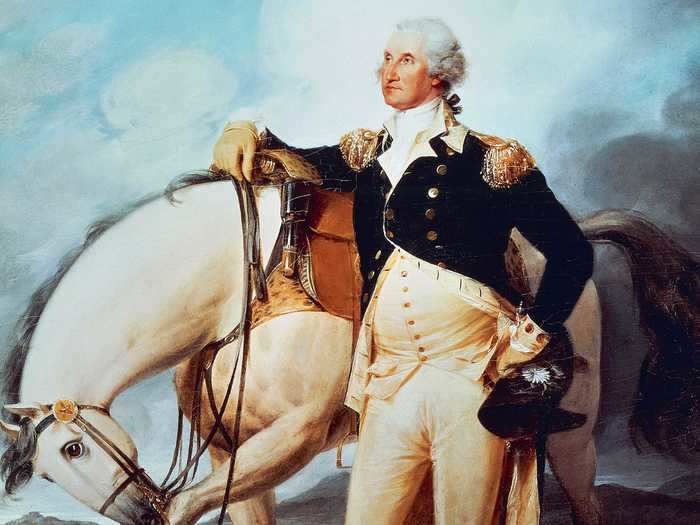
The Constitutional guidelines for the president's inauguration only specify the date and words of the oath.
The president's inaugural address is a tradition, and every president has given one. Inaugural celebrations are another tradition. George Washington famously danced the minute after his inauguration.
President's Day is another uniquely American holiday. It was previously known as Washington's Birthday, and was declared a federal holiday in 1879.
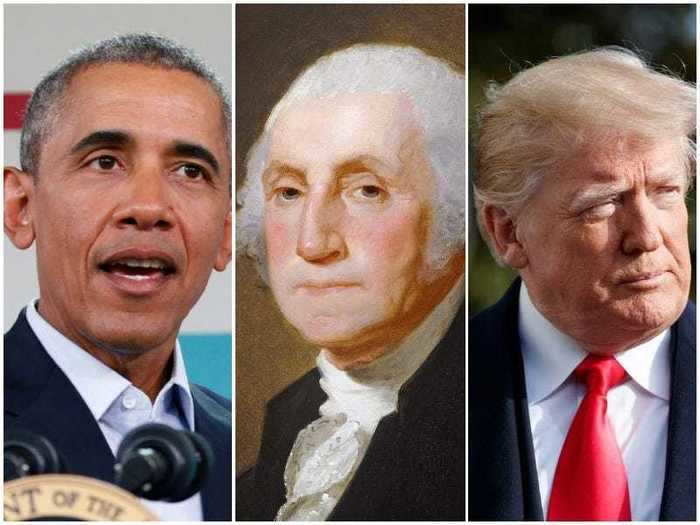
The holiday was originally celebrated on Washington's actual birthday, February 22, until the Uniform Monday Holiday Bill of 1968 shifted the date to the third Monday in February. The holiday is now referred to as President's Day, and is meant to honor all presidents of the United States.
Labor Day commemorates the achievements of American workers and has been a federal holiday since 1894.
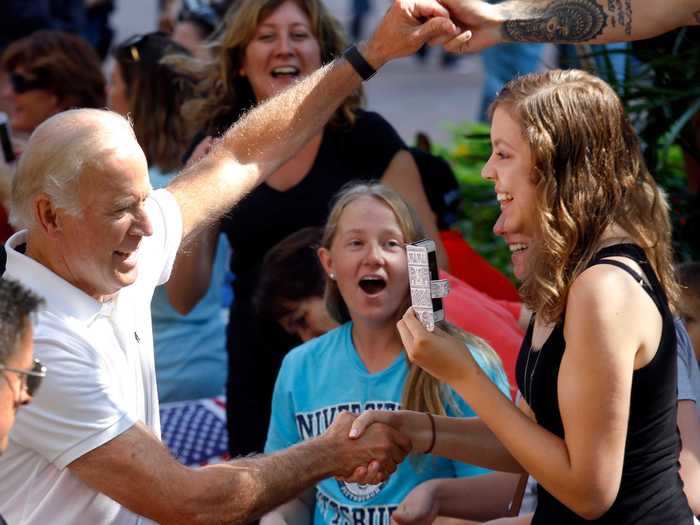
Labor Day was created by the labor movement in the late 19th century. It is traditionally observed on the first Monday of September, and includes parades, parties, and athletic events.
Easter fashion parades started in New York City in the mid-1800s.
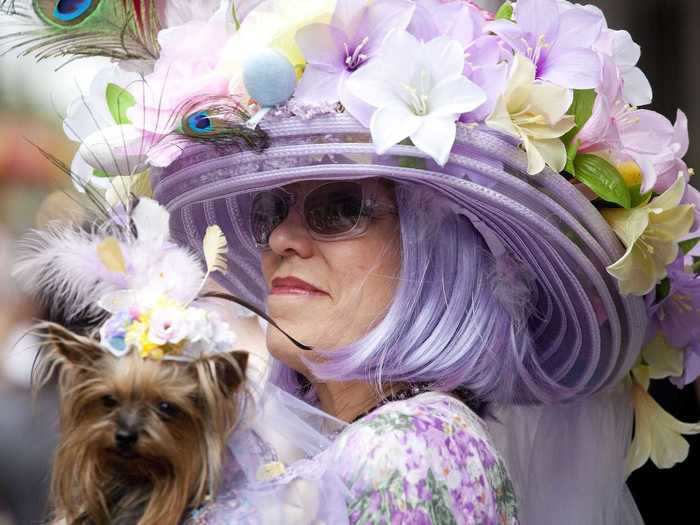
According to Time, the parades were founded on an old superstition that wearing new clothes at Easter time meant good luck for the remainder of the year.
In the mid-1800s, wealthy New Yorkers leaving the churches along Fifth Avenue would parade their fine clothing. Easter parades are still celebrated today.
Gift-giving at Hanukkah was started by European Jews who moved to America and wanted to share in the Christmas cheer.
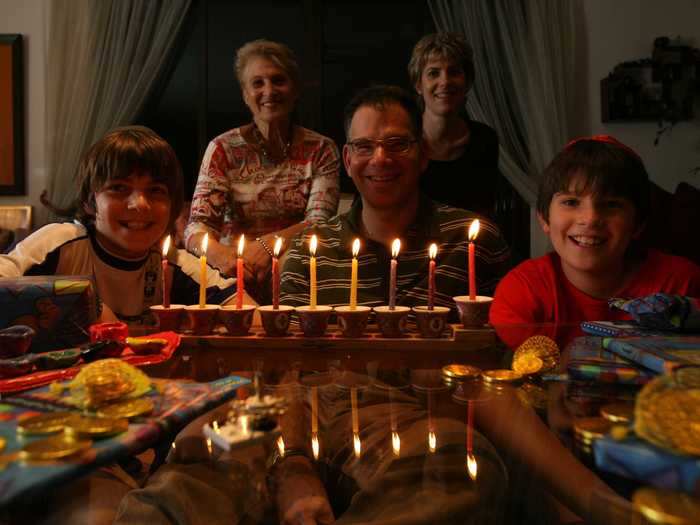
Hanukkah gift-giving had started by the 1920s. Josh Plaut, the head rabbi at the Reform Metropolitan Synagogue in New York City, told The Atlantic, "Hanukkah is a minor holiday that America has elevated into something much more."
Having pickle-shaped ornaments on Christmas trees has been an American tradition since the late 1800s.
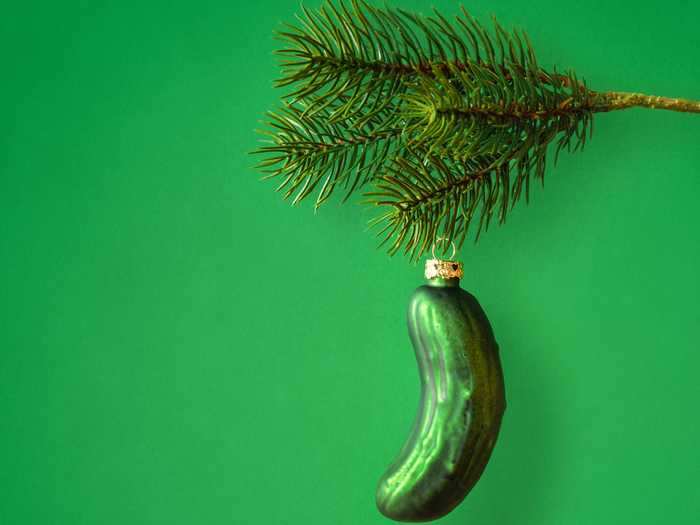
According to History.com, the tradition grew from a Woolworths marketing strategy. After the store received a huge shipment of pickle-shaped ornaments, it proposed the idea of hiding a pickle in the Christmas tree and giving whoever found it a prize.
Stringing lights around Christmas trees started in New York City in 1882.

According to Smithsonian, Edward Hibberd Johnson, a friend of Thomas Edison, came up with the bright idea to string lights around Christmas trees. Trees had previously been lit up with candles, a dangerous fire hazard.
Groundhog Day dates back to 1887, and every year on February 2 in Punxsutawney, Pennsylvania, an elaborate groundhog ceremony is held.
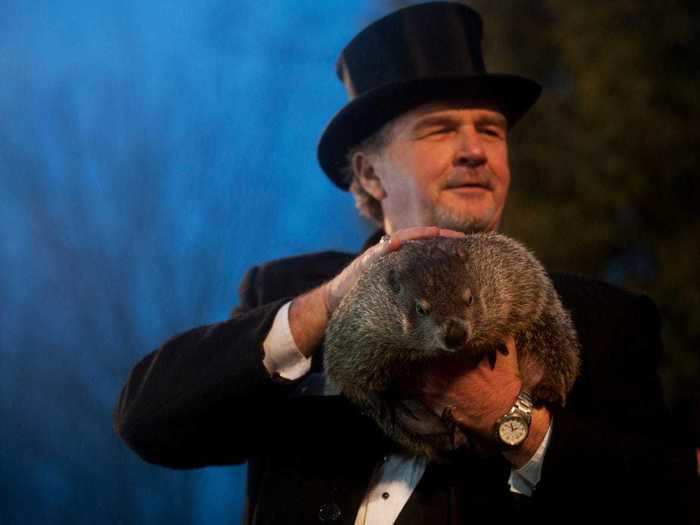
Groundhog Day involves a groundhog named Punxsutawney Phil. If he sees his shadow, it means winter will last for six more weeks; if he doesn't, it means an early spring.
According to History.com, the first Groundhog Day was started by a newspaper editor Clymer Freas, who proposed the idea to Punxsutawney Groundhog Club.
The National Climatic Data Center reported that Phil's predictions have been correct 39% of the time.
The Fourth of July has been celebrated with fireworks since 1777, a year after the colonies claimed independence from Great Britain.
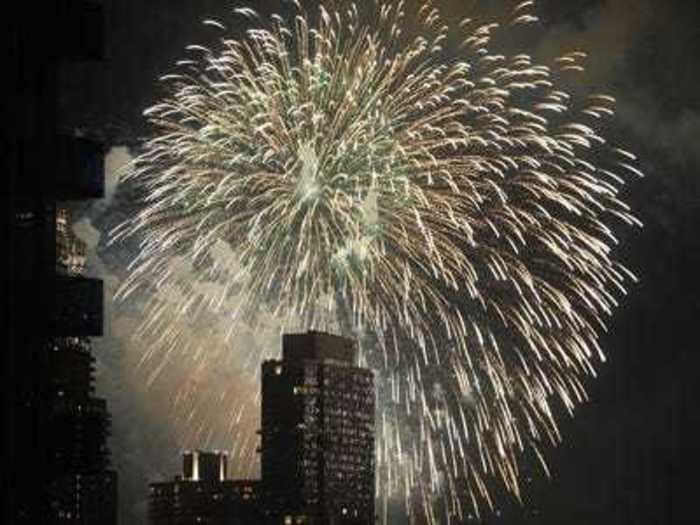
Though Fourth of July celebrations have been a tradition since 1777, it was only made a federal holiday in 1941.
Fireworks have also been a tradition since the first Fourth of July. That year, the Pennsylvania Evening Post reported, "At night there was a grand exhibition of fireworks (which began and concluded with thirteen rockets) on the Commons, and the city was beautifully illuminated."
Pumpkin carving is a popular Halloween tradition that has been around since 1866.
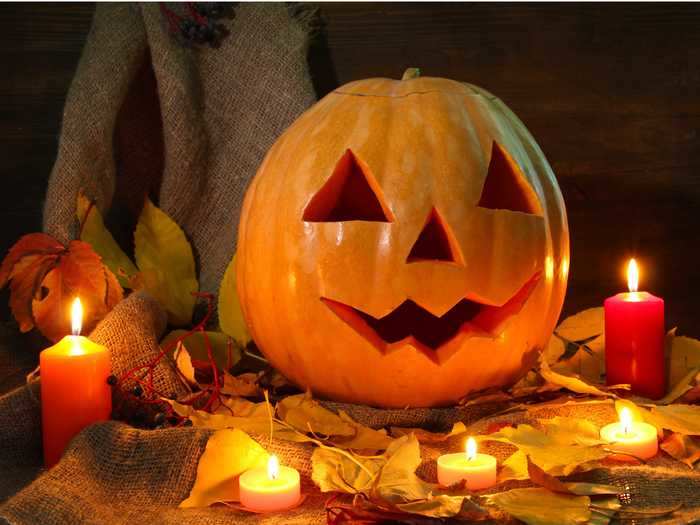
The first reference to pumpkin carving in the US was in the children's magazine Harper's Young People, which reported "a great sacrifice of pumpkins" for Halloween in 1866.
Mardi Gras festivities began in the United States in Alabama, but are now more closely associated with New Orleans.
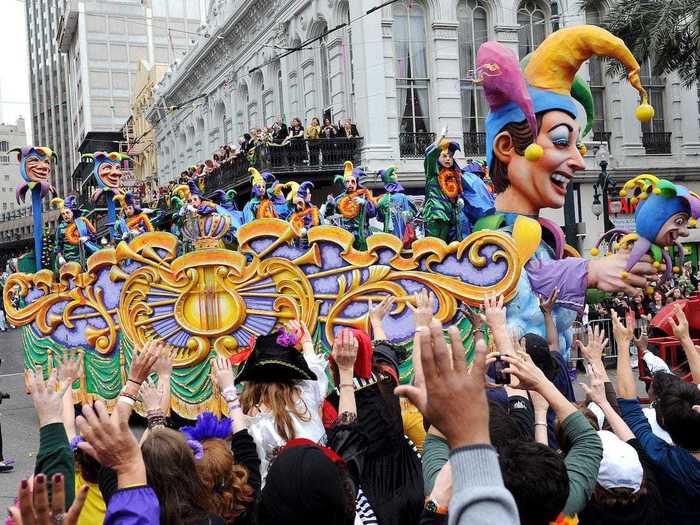
Mardi Gras was actually started by a French-Canadian explorer, Pierre Le Moyne d'Iberville, who arrived in what is now Mobile, Alabama, on Fat Tuesday, 1699, according to Town & Country. He named the location Point du Mardi Gras and threw a party.
The holiday, which is French for "Fat Tuesday," is widely celebrated in New Orleans due to the city's French heritage.
Thanksgiving has inspired some unique offshoot traditions, like the presidential turkey pardon.
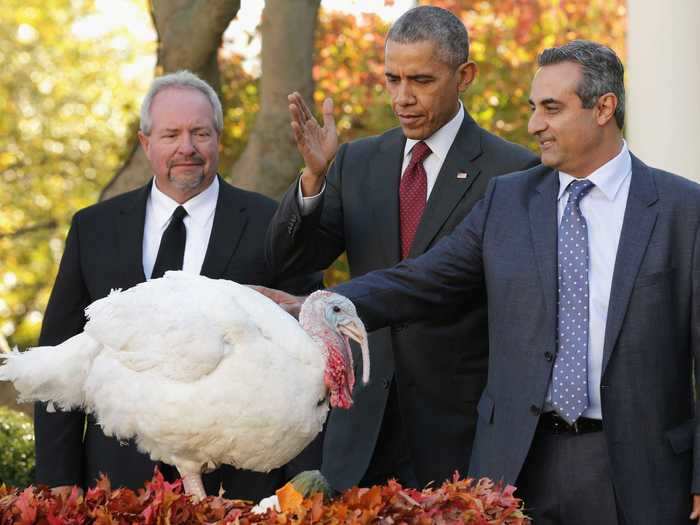
The unusual tradition of turkey pardoning dates back to Abraham Lincoln and 1863. According to White House History, White House reporter Noah Brooks wrote in a dispatch, "A live turkey had been brought home for the Christmas dinner, but [Lincoln's son Tad] interceded in behalf of its life. ... [Tad's] plea was admitted and the turkey's life spared."
Though other presidents, like Harry Truman and John F. Kennedy, also pardoned turkeys, the tradition wasn't made official until 1989, by George H.W. Bush.
Thanksgiving feasts are the oldest tradition in America, dating back to 1621 — over 150 years before the Revolutionary War.
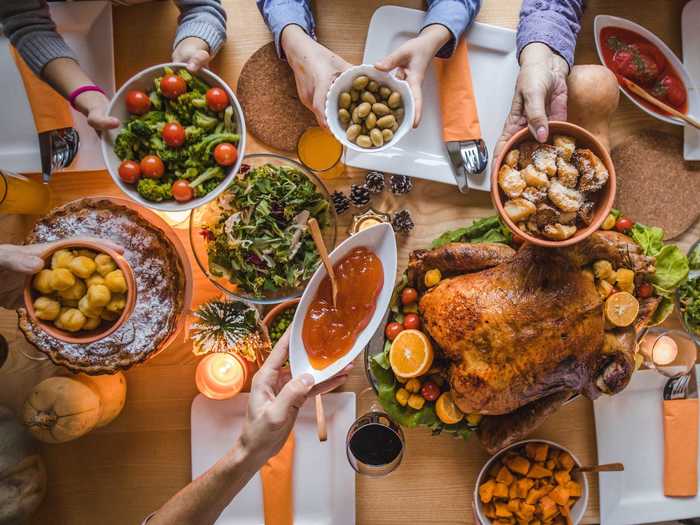
Though the first record of a Thanksgiving celebration was in 1621, it wasn't until 1863 that Abraham Lincoln declared it a national holiday.
READ MORE ARTICLES ON
Popular Right Now
Popular Keywords
Advertisement